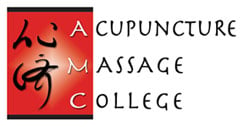The age-old refrain, "Eat your vegetables!" gets scientific support as researchers present the latest findings on cancer prevention. New data demonstrates how diets full of raw vegetables -- particularly broccoli sprouts -- and black raspberries could prevent or slow the growth of some common forms of cancer.
Broccoli Sprouts. Your mom was right when she told you to eat your broccoli, or at least your broccoli sprouts. Researchers have found that this rich source of isothiocyanates (ITCs) -- a well-known class of cancer prevention agents -- could play a direct role in preventing bladder cancer.
"The bladder is like a storage bag, and cancers in the bladder occur almost entirely along the inner surface, the epithelium," said senior author Yuesheng Zhang, M.D., Ph.D, professor of oncology at Roswell Park Cancer Institute. "The ITCs in broccoli sprout extracts after oral ingestion are selectively delivered to the bladder epithelium."
Zhang and his colleagues found that freeze-dried aqueous extract of broccoli sprouts significantly, and dose-dependently, inhibited bladder cancer development. The incidence, multiplicity, size and progression of bladder cancer were all inhibited by the extract, while the extract itself caused no observable changes in the bladder. This protective effect of the extracts was associated with a significant increase in the bladder of several enzymes that are known to protect against oxidants and carcinogens, Zhang says.
"Cooking can reduce 60 to 90 percent of ITCs," says Li Tang, M.D., Ph.D. of Roswell Park Cancer Institute. "Heating destroys the enzyme that converts the precursor glucosinolates into ITCs, and also destroys ITCs already formed, which is why you need to eat cruciferous vegetables raw rather than cooked to receive the food's maximum benefit."
Black Raspberries. These berries can protect against esophageal cancer by reducing oxidative stress in patients with Barrett's esophagus (BE), a pre-cancerous condition that usually arises due to gastroesophageal reflux disease, report researchers at The Ohio State University.
According to the researchers, BE patients have a 30- to 40-fold increased risk of developing esophageal adenocarcinoma (EAC), the fastest growing cancer in terms of incidence in the United States.
EAC is a deadly cancer with a 15 percent five-year survival rate; an estimated 14,000 people will die from esophageal cancer in the U.S. in 2008. Moreover, a number of treatment options are available to BE patients for symptom relief, researchers say, but none has proven curative or eliminated the risk of cancer progression.
"In addition to gastroesophageal reflux disease, increasing body mass index or body fatness is strongly associated with EAC development; whereas, plant-based diets and particularly increased fruit consumption has been associated with decreased risk for EAC," said Laura A. Kresty, Ph.D., assistant professor of at Ohio State University.
According to Kresty, research models of BE showed that black raspberries inhibited oral, esophageal and colon cancers. The studies showed that berries reduced measures of oxidative stress (the destruction done to cells by oxygen ions or small reactive molecules containing oxygen), decreased DNA damage, inhibited cellular proliferation rates, and reduced the number of pre-cancerous cells in the esophagus and colon.
"We can give black raspberries before we have any initiated cells, or we can administer after we already know we have initiated cells," Kresty said. "What's promising about the berries is that they work in both cases. There aren't nearly as many agents that work in the latter scenario."
In this study, BE patients ate 32 or 45 grams (female and male, respectively) of freeze-dried black raspberries daily for 26 weeks. After 26 weeks, patients experienced a statistically significant decline in levels of 8-Isoprostane, an indicator of global oxidative stress and DNA damage, which has been linked to the development of BE and EAC.
According to Kresty, 58 percent of patients experienced marked individual level declines of 8-Isoprostane. Among 37 percent of BE patients, the black raspberry regimen also resulted in increased tissue levels of GSTpi, an enzyme that detoxifies carcinogens and reactive oxidants.
"Black raspberries have a good profile in terms of tolerability -- many of the potential toxic side effects associated with a new drug are less of an issue because we are simply administering a food in a non-traditional manner," Kresty said. "Patients seem amenable to such an approach. They understand it and enjoy being able take positive action for potential health gains."
For information about Acupuncture & Massage College’s Oriental Medicine and Massage Therapy programs call Joe Calareso, Admissions Director, at (305) 595-9500.

 (305) 595-9500
(305) 595-9500






